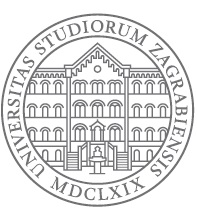| Sažetak | Predmet istraživanja u ovom radu je aristokratsko republikansko uređenje Dubrovačke Republike, njegovo konstituiranje i trajanje u očuvanju dubrovačkih interesa i cjeline, institucija vlasti te socijalizaciji pučanstva. Obrazovni sustav kao i kao i ostali dijelovi društva imao je svoju pragmatičnu ulogu vezanu uz gospodarske ciljeve. Dubrovački školski sustav kao i u ostalim zajednicama služio je u legitimizirajućim procesima u zajednici, prihvaćanju i učvršćivanju normi i vrednota te odgoju mladih plemića u republikanskom duhu. U istom duhu odgajani su i ostali građani. Kulturni amalgam zajednice nastajao je od isprepletenih tradicija, navika, jezika, socijalnih položaja, kulturnih utjecaja Istoka i Zapada. Privid jedinstvenosti davao joj je stabilan i relativno slobodan život njenih stanovnika. Trajnost i stabilnost stvarala se preko republikanskog etosa temeljenog na kršćanskoj i klasičnoj tradiciji. Dubrovački aristokratski republikanizam koji je imao punu potporu naroda gradio je jedan poseban tip domoljublja - odanost slobodi. Sloboda je bila nosivo načelo, proklamirani cilj i stvarna i simbolička zastava dubrovačke države. Privrženost slobodi temeljno je načelo svakog republikanskog društva, pa i dubrovačkoga. Zaštita slobode značila je zaštitu nezavisnosti svih pripadnika zajednice, slobodu biranja vlasti i samostalnost u donošenju vanjskopolitičkih odluka. Glavni prinos rada jest povezivanje i prožimanje republikanskog etosa s obrazovnim i ostalim elementima društva, te teorijama temeljem kojih se stvarao koherentan kulturno- politički sustav dugog vremenskog trajanja. |
| Sažetak (engleski) | The Republic of Ragusa was a type of medieval urban communal society which had successfully sustained itself over a long period of time with a minimum amount of change. The traditional system dating from a time when Ragusa was ruled by the Venetians had been preserved, to a major extent, for the entire duration of the Republic (1358 - 1808) and for the entire duration of international independence of Ragusa. Ragusa owes its longevity and stability primarily to favourable international geopolitical and economic relations between the East and the West, between the Ottoman Empire and the big western empires and kingdoms but also to a stable internal structure and hierarchy which Ragusa managed to build relying on own skills and resources. The geopolitical position was beneficial to its trade and goods exchange, which had continued for centuries. The Ottoman Empire exported through Ragusa raw materials and half-products to the West and imported finished products of high technological input or strategic raw materials which were in short supply in the Empire (salt, textiles etc.). The culture of living in Ragusa had developed over long periods of its history from various elements originating in different neighbouring and distant cultures. Some of them were more and others less significant in particular historical periods. Although the Roman element and its heritage was prominent in the early days, later periods saw a predominance of Slavonic elements and integration in broader cultural environments, in particular the coastal Adriatic area, all these elements smoothly intertwining with various activities to form a common culture. Here, as in any other culture, language comes first, followed by literature created in that language, science and other spiritual and cultural goods. The integration of Ragusa in a broader cultural area was facilitated by a large number of poets, writers, scientists and other cultural workers but also by the entire cultural constellation that was developing in the city. This paper will, in particular, focus on the aristocratic republican system which employed a large variety of methods in order to preserve the Ragusan interests and integrity and achieve socialisation of its people. The key was the Ragusan education system which, very much like other parts of society, had a pragmatic role and defined objectives. The official school system was not only aiming at the education of useful citizens (in commercial and every other respect), but also at “transmitting codes”, both in terms of conveying the achievements of the Greek and Roman civilisation and transmitting the values and norms on which all of the Particular attention is given to the formation of ideological patterns through the education system which participated in the co-creation and emergence of republican ethos and values and norms as well as the role of society groups and individuals in the emergence and acceptance of those normative patterns or in legitimation of the system. The school system and its main providers are placed in the context of educational thought of the Renaissance and humanism in which attempts were made at finding answers, inspirations or role models and theories which could become essential parts of the school system as an integral part of a broader cultural system. Pragmatic function of the Ragusan school system in everyday life is shown through various stages of its development, along with the importance of education in the creation of ideological consciousness of the Ragusan patriciate, its duties and reinforcement of the system. Last chapter of the paper describes an attempt at developing educational theories undertaken by two of the most distinguished thinkers of Ragusa - Benedikt Kotrulj and Nikola Gucetic. In his book on the role of merchants (as the largest and most significant stratum of the society of Ragusa), Benedikt Kotrulj tried to create a leading class of society which had to cater for its own educational needs and set an example to other classes and groups. Nikola Gucetic undertook a much more ambitious project - link educational characteristics along the economic base of the society and provide a normative model for proper education of young members of society as citizens of the Republic. Their attempts to establish educational theories were not particularly significant for the Ragusan society of that time, but they originated from that society, were to a major extent based on its experiences and remained a permanent expression of the efforts of Ragusan society to implement educational methods in the process of creation of the republican ethos as the connective tissue of the state community of Ragusa. |


